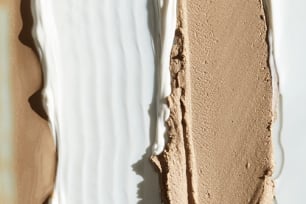When applied properly and diligently, broad spectrum sunscreens are proven to protect against premature skin aging and skin cancer. However, studies have shown that a mere 25-50% of users apply the dermatologist recommended amount of sunscreen1 to properly protect skin from sun damage.
In order to stay adequately protected, it is important that all exposed areas of skin are covered by a generous layer of sunscreen. As a general rule of thumb, a nickel-sized amount should be applied to the face and a shot glass amount should be applied to the body. The amount may vary slightly depending on an individual’s weight or height.
It is also important to remember that no matter how much sunscreen you apply, it should be reapplied every 2 hours, especially when spending an extended amount of time outdoors. Reapply more frequently if swimming or sweating.
1Neale, R, Williams, G, Green, A. Application patterns among participants randomized to daily sunscreen use in a skin cancer prevention trial. Arch Dermatol. 2002 Oct; 138, 1319-1325.

